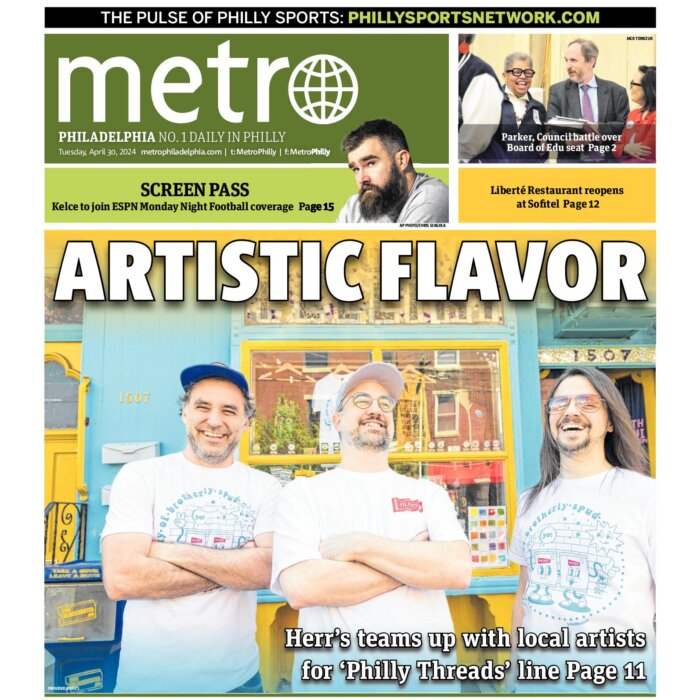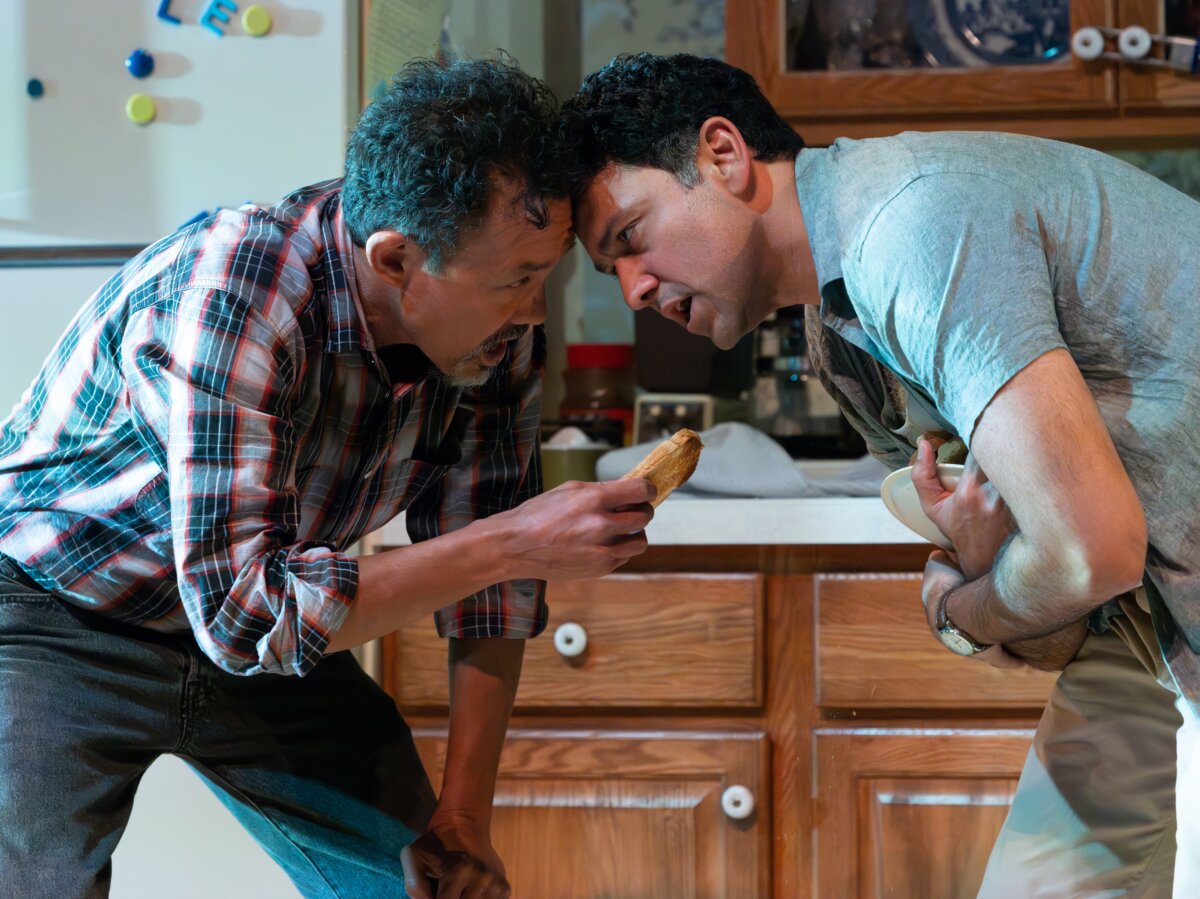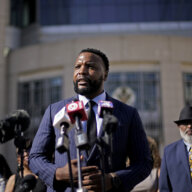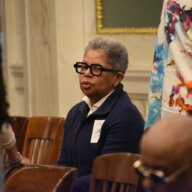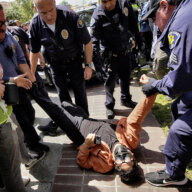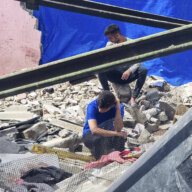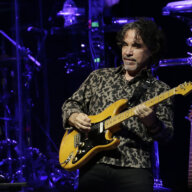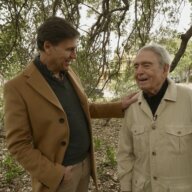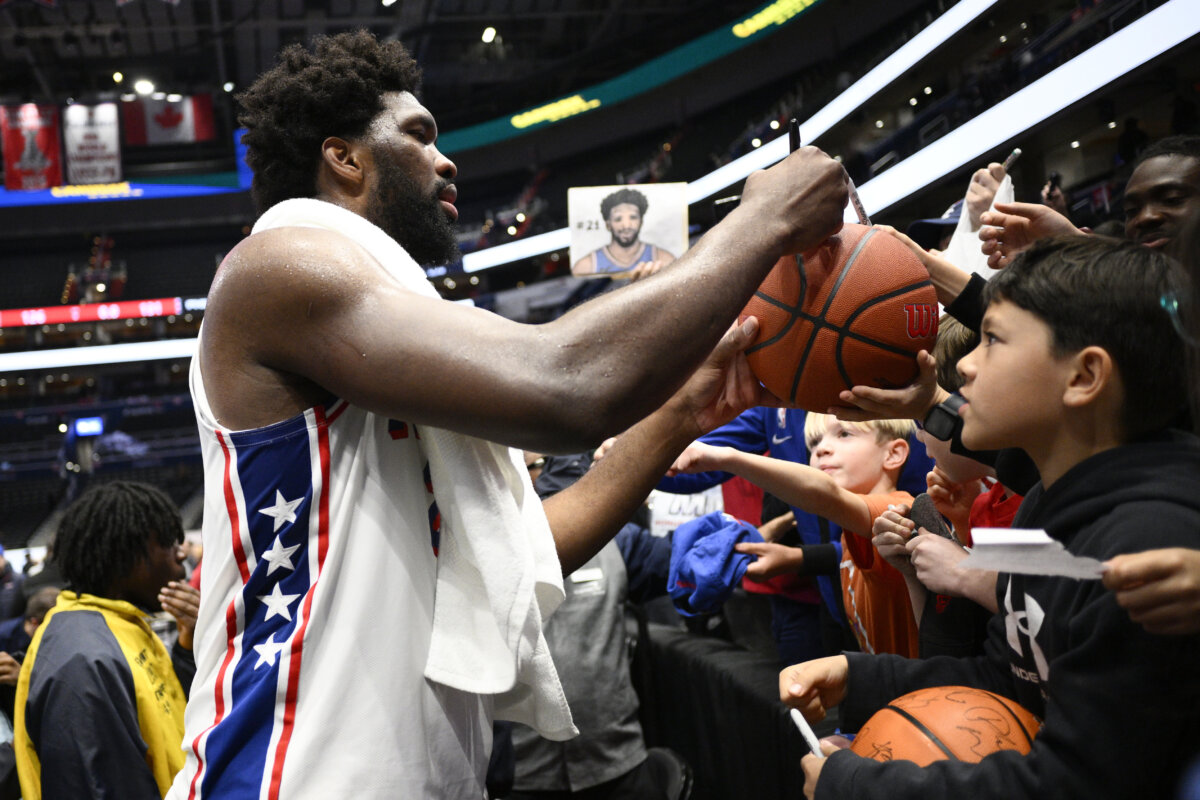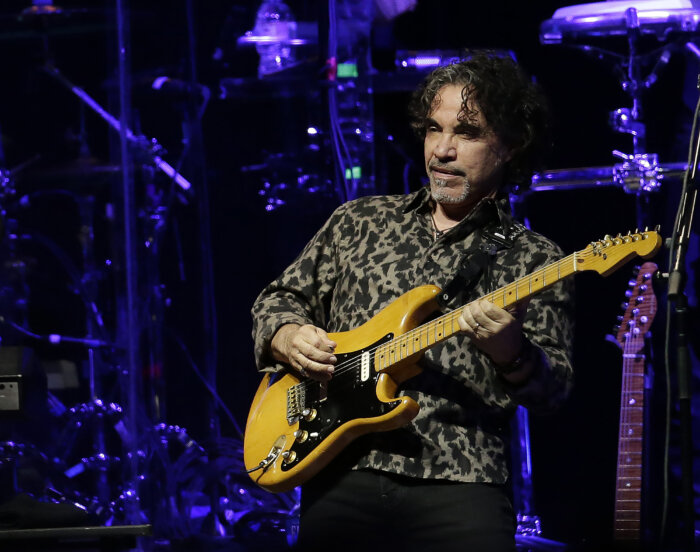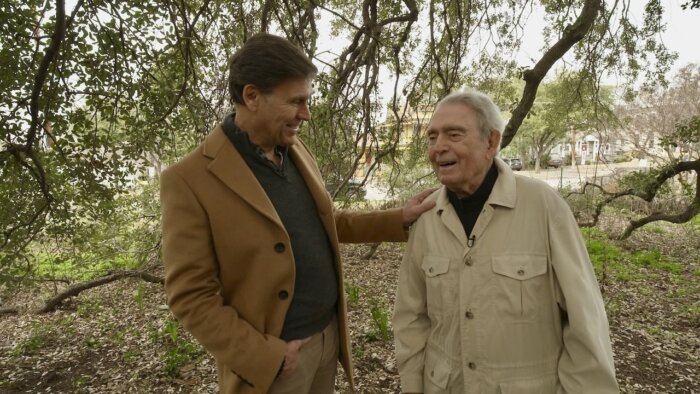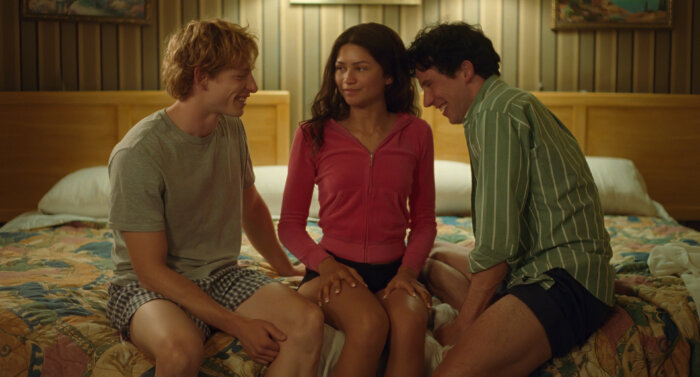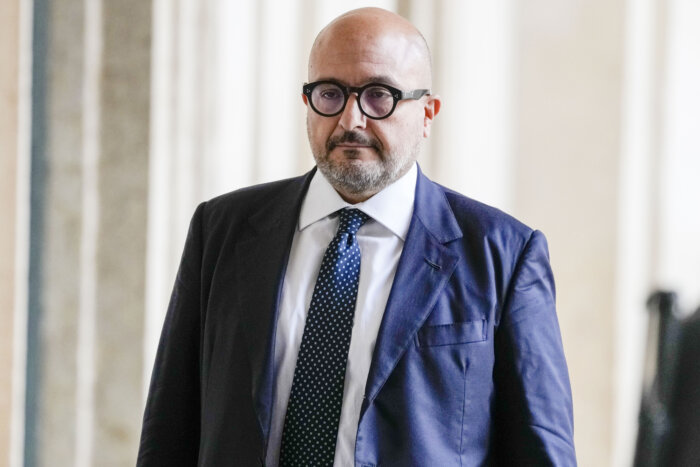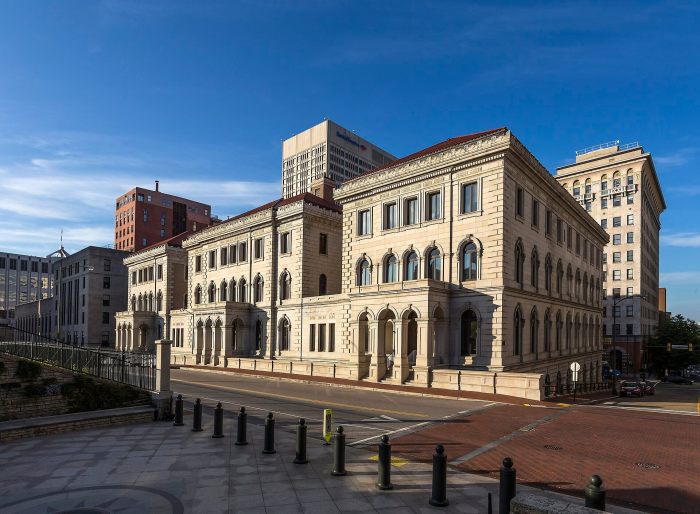In author Sam Shepard’s 1980 drama, ‘True West’, two estranged brothers, look harshly at the value systems of the Old West and the New West. Sibling rivalry, the dynamics of masculinity, defining success – all of these things play into the relationship between Lee, the menacing drifter, and Austin, the strait-laced screenwriter, before their life roles are reversed, and an even greater hell breaks loose.
Shepard’s modern classic — in the eyes of Philly actor-producer Sanjit De Silva, fellow thespian Ron Domingo and People’s Light Producing Artistic Director Zak Berkman — offers a unique parallel to the struggle of generations of Asian Americans looking to define and refine their own version of the American Dream.
And with that, an all-Asian-American ‘True West‘ plays at People’s Light now through Aug. 27, with director Mei Ann Teo and actors Greg Watanabe and Ching Valdes-Aran joining De Silva and Domingo, on and off stage.
What America is – in terms of hopes, dreams, ambition – is at the center of Shepard’s drama. How does the Asian-American ideal translate in your iteration of ‘True West’?
De Silva: ‘True West’ partly deals with the essential question of what America is, and in putting AAPI actors in these roles, we’re acknowledging that Asian-Americans have also been a part of the very fabric of building up the American West since the 1800s. Asian America is simply America and putting our bodies in this play manifests this fact.
Domingo: The American Dream is different for everyone. But as an American, it was easy to relate to Austin and Lee’s dreams and desires. Austin has some material success in show business and Lee lives a free nomadic life. They idealize each other’s lives and strive to get what the other one has in order to find content within themselves. They pursue an illusion of what they think will lead them to happiness, but these idealistic views only lead to failure. This is an idea that people all over the world can relate to and isn’t exclusive to any particular race or culture.
Berkman: I could never speak directly regarding the lens with which they view this play or how their cultural backgrounds and identities add further layers to the richness of this work. What I can say is that all of us who live in this country are impacted by the way America is continually at war with itself – its demons, its failures, its aspirations, its brutality – and similarly we can all be seduced by its mythologies and self-delusions. The results are humorous and horrific, and I love how these artists illuminates it all.
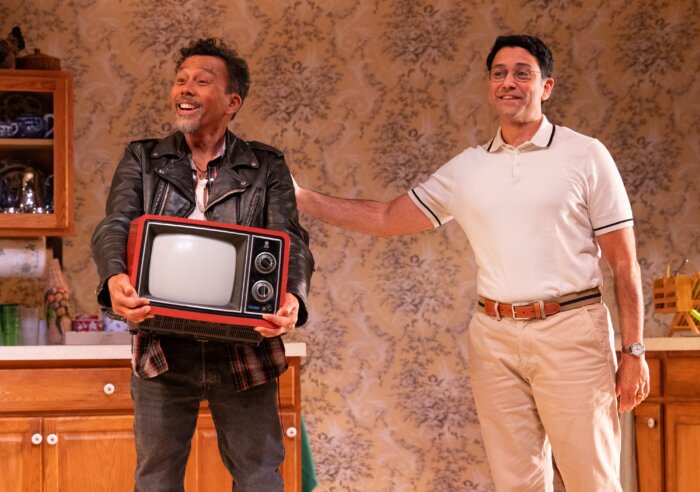
What does performing Shepard mean to you, to People’s Light, and why does this take on ‘True West’ fit its ideals?
De Silva: The play grapples with family and legacy and who we become as a result of that, and that also fits in with my experience as an immigrant and South Asian American. We came to this country for a better life, the American dream, the mythic West. But so did all Americans. We’re all immigrants in America (except of course the indigenous people of this land who have been for thousands of years). So, ‘True West’ belongs to us all. The “West” belongs to us all.
Berman: In my 12 years here, we had yet to stage a Shepard play. That may be in part due to my ambivalence at amplifying or romanticizing the male ego – in story or performance – and there is that risk with various of Shepard’s most known plays. But it is more due to our not yet finding potential collaborators with a strong POV on how to enhance the relevance of the work. When Sanjit proposed ‘True West’, I leapt at the idea. Sanjit is an extraordinary actor, but even more so an inspiring citizen-artist. He perpetually looks to how a work of theater can spur vibrant self-reflection and catalyze critical discourse. After a few sentences about what drew him to ‘True West’, I was all in.
How was it decided who played what brother? And did you two need a fight choreographer? Those last scenes are rough.
De Silva: I knew I needed to work with an actor I could trust implicitly and who would be a great partner. Ron and I did a play many ago, I’d wanted to work with him ever since, and this felt like the perfect opportunity for us to reunite and create something special. Shepard wrote the two characters as two sides of the same coin after all. But this iteration happens to work out because I really wanted to explore the arc that Austin goes on. From being a middle-class writer who has conformed to working in the studio system, and who has always been the good son and done the “right” thing, to seeing that the system is not a meritocracy as it would have us believe and how he blows everything up to try and free himself and “find” himself anew. And how Austin essentially tries to trade his life for his brother’s. That arc seemed like such a complicated journey to take and one that I think we all go through in some way or another. In terms of the fight, I feel it’s only one part of a huge puzzle piece of the play. That being said, we had a great fight choreographer, Adam Danoff, who really helped craft the conflict to our specific visions of the characters. It’s definitely very physical and complicated but also really rooted in the storytelling of the sibling relationship.
Domingo: Sanjit asked if I would be interested in playing Lee and I jumped at it. I’ve always been a fan of Sanjit as an actor, and thought it would be a great opportunity to act in a play in which I never thought I’d be cast. I like the fact that Lee lives by his own set of rules and not by what society dictates. One of the themes of the play that I found interesting was the artist’s struggle between having to work on something commercially appealing to pay the bills or doing art. Fortunately, with this production of ‘True West’ at People’s Light, I’ve been able to do both.
